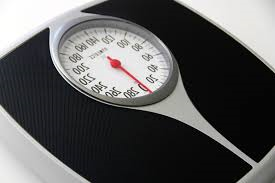Weighing the Effects of Weighing Students

High school is often portrayed as the peak of insecurities. Whether it be in one’s social skills, sexuality, academics, or body image, pressure is coming from every direction possible to fit in.
After asking multiple young Geneva High School girls what their initial reaction was to having to be weighed for wrestling in gym class, most responses immediately leaned towards anxious.
Aydan Fusco, a freshman, shares her anxiety, saying, “As someone who has and still is dealing with anxiety and body image issues, this is a major fear of mine,” she adds, “Personally gym class is a nightmare already and I have enough problems with how I look in gym uniforms. I can’t even imagine getting lined up according to weight.”
This is one of many girls whose stomachs drop at the mention of being weighed and seeing that dreaded number on the scale. The anxiety that is already instilled in these girl’s minds during mandatory physical education multiplies when they are organized according to weight.
Kristin Ralston, who plays A team freshmen volleyball and basketball on the sophomore team here at Geneva, said, “This is a complete invasion of my private information…Weighing students for wrestling, especially young girls, it makes them compare their themselves to other girls, which is not healthy, and gives them a distorted image of what they should weigh and look like.”
A physical education teacher here at Geneva, Ms. Meadows, explained why students get weighed in their sophomore year during personal fitness.
“The main purpose for us to weight students is so they know the information. We use a scale called the Tanita Scale and it also give students their BMI, Body Fat Composition, Hydration Levels and a ton of other information. We use it as a teaching tool so students understand the importance of taking care of their bodies.”
While weighing the pros and cons of these P.E.weigh-ins, one might say that ‘they keep youth aware and healthy’ or ‘it is only for gym class it doesn’t mean anything’, but coming firsthand from the students that are weighed, it seems to only cause damage.
Another girl said, “A lot of young women are insecure about their bodies and their weight…It makes them worried about what other girls think of them and their anxiety kicks in…It could be very triggering for some.”
Ms. Meadows disagrees, further explaining that if students have unhealthy habits, it is best to change them early on.
“I think everyone should learn about their bodies and health. The negatives need to be changed into positives. You only get one body, so you need to do your very best to take care of it.”
However, the sight of one’s weight compared to their peer’s could create insecurities that whirlwind into anxiety in everyday life or in extreme cases, eating disorders.
Aydan Fusco adds, “A logical solution is to instead go by height, it may not be as accurate, but it is quite safe. No one is going too intensely during gym class, it should be fine.”
Many of the other girls came up with the same solution or others said just to let girls be paired with friends, muscle mass, or girls with the size in general.
Weighing in gym may seem harmless to school administrators whose intentions are purely to teach students about health and exercise, but to these young girls, it only adds to the list of pressures they face everyday.
While Ms. Meadows feels strong in her beliefs that students should be aware of their weight and realize habits they have as adolescents, she disagrees with the idea of kids being weighed and lined up for wrestling.
“I do not think wrestling should be a PE unit. That should only be an extracurricular activity,” Meadows said.
Girls who are allowed to be paired up by size or height might be able to enjoy wrestling and escape their anxiety instead of being trapped in what one of the girls described as a “traumatizing situation where the ‘winners’ are the smaller girls in the front of the line and the losers are backed into the corner of body shaming.”
